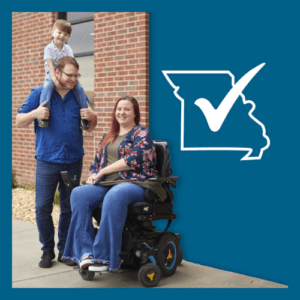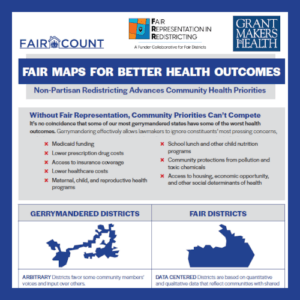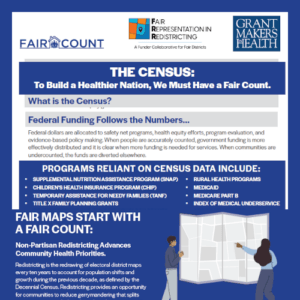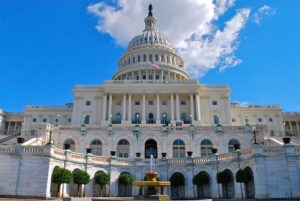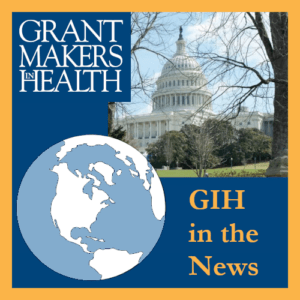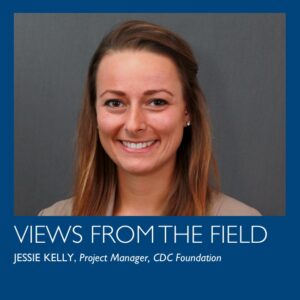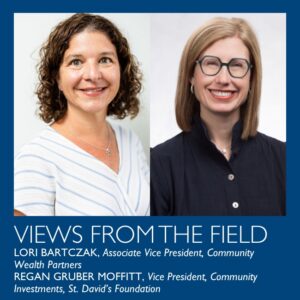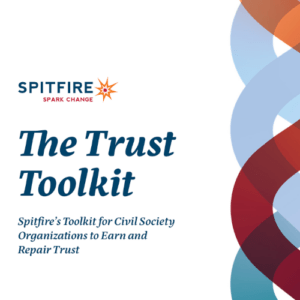Featured Resources
Raising the Bar on Voting Accessibility in Missouri
Missouri Foundation for Health has developed a policy brief with recommendations supporting the efforts of the disability community across the state to make voting processes more accessible for all Missourians.
Fair Maps For Better Health Outcomes
Non-Partisan Redistricting Advances Community Health Priorities. Without Fair Representation, Community Priorities Can’t Compete. It’s no coincidence that some of our most gerrymandered states have some of the worst health outcomes. Philanthropy can’t solve health inequities alone. But supporting community-led work to secure fair districts can help change the system – and strengthen our democracy – by allowing communities to choose responsive lawmakers who will fight for better health policy.
To Build a Healthier Nation, We Must Have a Fair Count
Every decade, the Census Bureau fulfills a constitutionally-mandated count of every person living in the
United States. Data derived from the Decennial Census and the ongoing American Community Survey form the statistical backbone for public health, hospitals, insurance, and dozens of federal and other government programs. This data is also an important tool for funder decision-making. For funders focused on health equity, quality data is needed to provide a better understanding of health disparities and the advancement of health equity goals.
Explore Community Engagement and Empowerment Topics
Latest Resources
Collaborating for Impact: Providing Trust-Based Grantmaking and Technical Assistance to Support Local Resilience to Extreme Weather Events
In the last few years, there has been an increased number of extreme weather events, including wildfires, tornadoes, hurricanes, floods and heatwaves in the United States. In 2023, the United States experienced 28 disasters that cost at least $1 billion, the largest number of billion-dollar disasters in a single year on record (Smith 2024). While some areas of the country are more susceptible to these threats, there are no regions immune to disasters. According to a recent Gallup poll, 37 percent of adults in the United States report they have been personally impacted by at least one extreme weather event in the last two years, which is higher than the 2022/2023 survey result at 33 percent.
The Blue Cross Blue Shield of Massachusetts Foundation: July 2025
The Blue Cross Blue Shield of Massachusetts Foundation announced a new grant opportunity: the Advancing Community Driven Mental Health grant program. This program will fund five community-based organizations with grants of up to $100,000 per year for two years, starting in December 2025, to improve and increase access to community based mental health services for adults experiencing mild to moderate mental health distress and practical problems of daily living, and develop the skills of a non-clinical workforce.
Reports and Publications
Public Policy Engagement During an Election Year
Political elections create both challenges and opportunities for foundations seeking to inform and influence the public policy process. Philanthropic organizations have broad latitude to conduct or sponsor a variety of policyrelated activities, and this flexibility includes the ability to promote civic engagement and encourage informed participation in democratic elections.
2011 Terrance Keenan Award Acceptance Speech
Read the acceptance speech of Drew Altman, head of The Henry J. Kaiser Family Foundation, upon receiving the 2011 Terrance Keenan Leadership Award in Health Philanthropy. He shares his thoughts on what foundations should be, concerns about the field, the theory of change, and his experience transforming Kaiser into what it is today.
Building Capacity for Health Advocacy at the State and Local Level
This paper was prepared in conjunction with a strategy session convened by GIH and sponsored by the Missouri Foundation for Health and The California Endowment last fall. It examines philanthropy’s role in advocacy, the various sectors that constitute the field of health advocacy, capacities required to effectively engage in advocacy efforts, ways health funders have facilitated advocacy capacity development, and key issues for future action.

